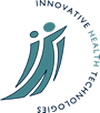The Technological Management Of Childbirth: Risk, Empowerment And Accountability
Abstract
The concept of the 'risk society' has focussed attention on the growth of uncertainties in late modern societies about the unequivocal benefits of scientific innovation and about the reliability of professional judgement. Paradoxically, this growing risk-consciousness has gone hand in hand with measurable reductions in the actual risk associated with many activities and is often accompanied by demands for a technological fix for those risks that are perceived. These contradictory impulses are especially evident in maternity care. While trends in maternal and infant mortality suggest that the risks associated with childbirth have fallen, there is a growing expectation that childbirth should be risk free and that the outcome should be a healthy and 'normal' infant. As a result, residual infant mortality and morbidity following delivery is often seen as the result of professional mistake or malpractice. As a result, further categories of risk are created for organisations and professionals, particularly in relation to expensive litigation. This leads to pressure on health care professionals to engage in the risk avoidance strategies associated with defensive medicine but these, in turn, create their own risks for professional judgement. Against this background the research will use ethnographic methods to study the implementation of a computerised decision support tool for managing fetal well-being in labour which is designed to reduce the risks associated with human error in the management of labour. It will seek to assess how the system impacts upon: clinical decision making; professional organisation and relationships; patient-professional relationships; patients' involvement in the management of their own labour; and organisational politics and structures. It will be concerned with how changes in practice affect: risk and perceptions of risk; patterns of actual and perceived accountability; professional and clinical autonomy; and the relative power of patients and professionals.
Summary
Background
The concept of the 'risk society' has focussed on growing uncertainties about the benefits of scientific innovation and the reliability of professional judgement. Paradoxically, this has gone hand in hand with reductions in the actual risk associated with many activities and is often accompanied by demands for a technological fix. These contradictory impulses are especially evident in maternity care. While maternal and infant mortality rates have fallen, risk conscious patients are increasingly concerned about the possibility of professional mistake or malpractice. As a result, further categories of risk are created for organisations and professionals, particularly in relation to expensive litigation. Against this background the research will study the implementation of a computerised decision support tool for managing fetal well-being in labour which is designed to reduce the risks associated with human error. It will assess how the system impacts upon: clinical decision making; professional organisation and relationships; patient-professional relationships; patients' involvement in the management of their own labour; and organisational politics and structures. It will be concerned with how changes in practice affect: risk and perceptions of risk; patterns of actual and perceived accountability; professional and clinical autonomy; and the relative power of patients and professionals.
Research Design
The research will employ ethnographic methods to investigate the ways in which the decision support system is used in day to day clinical decision making. Observations will be undertaken on the ward; at clinical staff meetings and in other hospital settings as appropriate. In addition the research will entail In depth semi-structured interviews with professionals, video recording of the use of the system in selected fieldwork sites, documentary analysis of policy documents and hospital records, and one-to-one qualitative interviews with patients.
Policy and Academic Implications
By uncovering the effects of the system upon day to day working relationships
and organisational dynamics, the research has the potential to inform future
design and identify key organisational and training issues. It will also
provide indications of the ways technological interventions impact on patients
and provide clues to those aspects which have the greatest potential to
enhance patient empowerment. The research will also have relevance for academic
debates around risk, the professions and decision-making.
The research addresses issues that are central to the concerns of the programme.
These include: questions of risk, including both measurable health risks
and a range of perceived social and personal risks; questions of identity
and the body: questions relating the medical division of labour and lay-professional
relations; matters concerned with the social management of health and medical
governance; and benefits and disbenefits for patients
Potential users include professional groups, such as the Royal Colleges
of Obstetricians and Gynaecologists and of Midwives, patient support groups
such as the National Childbirth Trust, NHS Trust managers and medical legal
defence professionals.
Contacts
Outputs
No output
News
No news

